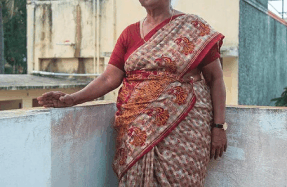

/ ECONOMY
TREKKING, CYCLING, HITCHHIKING, fainting, ailing, scarcely eking out an existence, more than ten million migrant labourers made their perilous journeys home after Modi announced a lockdown in March 2020. The move was as abrupt as it was authoritarian. A mere four hours’ notice was all the republic’s poorest breadwinners had to clear out and hit the road, nine in ten now unemployed, more than half with scarcely enough savings to survive a week, almost all unable to pay their rent. Not all made it. Hundreds, possibly thousands, died, some evading highways to steer clear of police patrols only to be run over by trains. A bailout package followed, generous to business and the bourgeoisie but parsimonious to the poor. Two months on, two-thirds of the urban proletariat was yet to receive any cash, a third any food.
What followed, however, was an altogether different omission. Labour weakened and, with an extra 114 million out of work, the state struck hard, making the US politician Rahm Emanuel’s dictum its own: “Never let a good crisis go to waste.” Nine of India’s thirty-six states and union territories set about ripping up labour protections. Madhya Pradesh decreed sweeping labour-law exemptions for the next thousand days, Uttar Pradesh the next eleven hundred, Gujarat twelve hundred. The eight-hour workday was expanded. Workers’ rights, safety standards and minimum wages included, vanished at a stroke. Retrenchment became easier, compliance audits less frequent.
Criticism poured in from unexpected quarters. The auto-rickshaw manufacturer Rajiv Bajaj, perhaps fearing that capital, too, could one day find itself at the tender mercies of the government, laid into Modi for “swinging from one end of the pendulum to the other.” Even the president of the Bharatiya Mazdoor Sangh—the trade union affiliated, like Modi’s ruling party, to the Rashtriya Swayamsevak Sangh—decried the “jungle raj.” Modi certainly wears his business-friendly credentials on his sleeve: “minimum government, maximum governance,” as his mantra goes. If siding with capital means subjugating labour, so be it. Wage suppression, after all, stimulates capital formation.
FOR ALL THAT, the pretensions of much of the liberal press notwithstanding, it must be remembered that the state’s war on the working class did not begin with Bharatiya Janata Party rule. Indeed, as the sociologist Jan Breman reminds us, the Indian state has form here. His book Capitalism, Inequality, and Labour in India is a synthesis of a lifetime of research on debt bondage in south Gujarat, spanning 1962 and 2017 and drawing in equal measure on archival material and ethnographic observation. In its broad sweep and commitment to a theoretically informed empiricism, it compares favourably with some of the finest accounts of labour history in recent years.
Coming from a working-class family—father a mailman, mother a domestic servant, both descendants of Amsterdam’s bargemen—Breman wound up in south Gujarat in the late 1960s. Studies of the working classes in both rural areas and industrial Ahmedabad followed. Since then, Breman has ranged widely, if always returning to the site of his first fieldwork. Historically as well as presently, Gujarat has posted some of the highest growth rates in the country, just as it has recorded some of the lowest wages. But this aspect of the much-vaunted “Gujarat model” is not so much its dark side as it is integral to its very existence. Wealth was built on the backs of unfree labourers.
Unfree labour in Gujarat, we are told, has a long history. Its origins lie in the hali system, born out of the emigration of technologically advanced sedentary cultivators that dispossessed and then enslaved the local tribal peasantry. The high landto-people ratio helped. As the sociologist HJ Nieboer has argued, slavery has rarely ever existed in dense societies. Large holdings prove a powerful stimulus for battening on bonded labour. So it was that the Gujarati hali, or bonded labourer, had his counterpart in the Malabar cheruman, Almoran kolta and Bihari bhuniya.
Breman makes much of the colonial “intrusion of capitalism,” so much “more exploitative” than the mode of production that obtained. His own evidence, however, points in a different direction. On the face of it, a hali’s “master” was a benevolent dhaniamo, “he who confers well-being.” But with the commercialisation of agriculture—the switch from growing food to cotton and cane production, from pastoral responsibility to wage payment—the landed interest all too literally seceded from the attached workforce. Gone were the days of commensality. Greater income also translated into an extravagant lifestyle. Casualised and expelled from their masters’ premises, the halis took up residence in derelict housing in village peripheries—out of sight, out of mind. It became harder to secure loans to treat ailments, conduct marriages, do house repairs and the like from their employers, who once readily doubled as moneylenders.
There were structural reasons why the hali regime was resistant to change. Very simply, amortisation at poverty wages was a pipe dream. This is Breman’s original insight: pauperism “was not the cause but the consequence of labour bondage.”
But this, even by Breman’s account, is too roseate a view of the pre-capitalist past. Indeed, his is no paean to feudalism. There was little paternalism in practice, he writes. A small plot of land for subsistence, daily rations, the occasional gift of clothes and cows, tea and tobacco, was all the scraps of largesse ever amounted to. The coming of capitalism, moreover, liberated the






